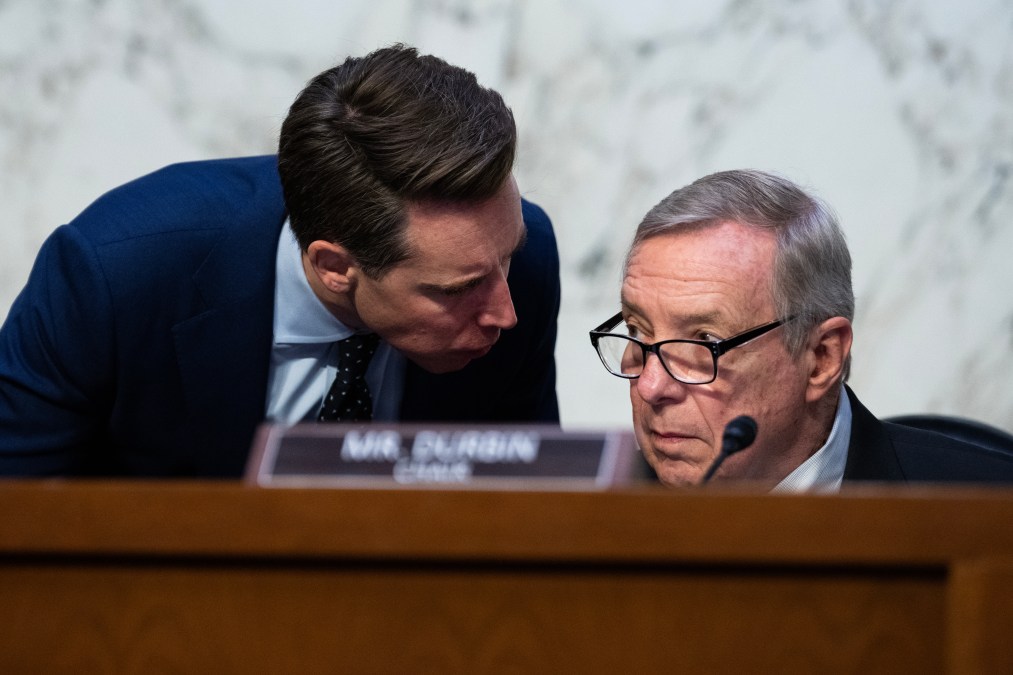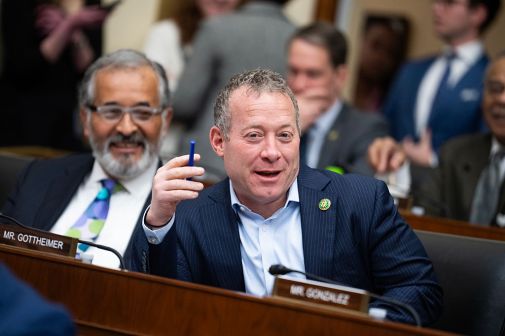Bipartisan Senate bill would establish path for AI harm lawsuits

A bipartisan pair of U.S. senators introduced legislation that would make it easier to sue AI system developers when their products cause harm, in an effort to incentivize safety in the growing technology.
The new Aligning Incentive for Leadership, Excellence, and Advancement in Development Act — or AI LEAD Act — from Sens. Dick Durbin, D-Ill., and Josh Hawley, R-Mo., would classify AI systems as products and establish federal legal grounds for product liability claims to be brought against developers in court when those systems cause harm.
While AI technologies, such as chatbots, have boomed in popularity over the past several years, so have concerns about the safety of those products, particularly for young people. At least two teens have taken their own lives after conversations with AI chatbots, prompting their families to file lawsuits against those companies.
Parents of those teens recently testified before the Senate Judiciary Committee — of which Hawley is a member and Durbin is ranking member. Durbin previewed the legislation at that hearing, according to the bill introduction announcement.
“Democrats and Republicans don’t agree on much these days, but we’ve struck a remarkable bipartisan note in protecting children online,” Durbin said in a written statement included in the release. “Big Tech’s time to police itself is over. Kids and adults across the country are turning to AI chatbots for advice and information, but greedy tech companies have designed these products to protect their own bottom line — not users’ safety.”
According to a one-pager accompanying the announcement, the bill (S. 2937) would create a path for civil lawsuits against AI system developers by the U.S. attorney general, state attorneys general, individuals, or a class of individuals. Those lawsuits could be brought over harms caused by design flaws, lack of warnings, express warranty, or products that are unreasonably dangerous or defective.
AI deployers could also be liable for harms under the bill if they modify an AI system “substantially” or intentionally misuse it, per the one-pager
“When a defective toy car breaks and injures a child, parents can sue the maker. Why should AI be treated any differently?” Hawley said in a statement included in the release. “This bipartisan legislation would apply products liability law to Big Tech’s AI, so parents — and any consumer — can sue when AI products harm them or their children.”
The legislation has a variety of endorsements, including from the American Association for Justice, Fairplay for Kids, Social Media Victims Law Center, and Tech Justice Law Project.
In a statement in the release, Meetali Jain, founder and executive director of the Tech Justice Law Project, said the AI LEAD Act would provide consumer protection and spur responsible AI development.
“A strong product liability law incentivizes companies to consider safety throughout the design and development process of AI products; not only when products fail and things go wrong,” Jain said.






